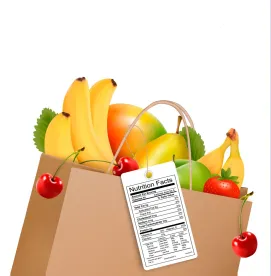This summer President Obama signed a new federal law requiring food manufacturers to disclose information regarding genetically modified organisms (GMO). The new law is different from the 2015 proposed GMO legislation which restricted states from enacting GMO labeling laws but didn’t contain federal labeling requirements.
The law represents a compromise between consumer groups and food manufacturers: it gives consumers access to information, and manufacturers flexible means of compliance and the benefit of a uniform federal standard.
The federal law, titled The National Bioengineered Food Disclosure Standard, leaves many issues unsettled. Two areas are attracting the most attention: the law’s digital disclosure methods and the definition of bioengineered food.
Background
 The July 2016 law (P. Law 114-216) preempts state GMO labeling laws, which had been passed in Vermont, Connecticut, and Maine. Pro-labeling groups argued that federal action was necessary to prevent a confusing system of state requirements, and manufacturers agreed. After the law passed, the Grocery Manufacturers Association stated that a “consistent national standard is far better than a costly and confusing patchwork of different state labeling.”
The July 2016 law (P. Law 114-216) preempts state GMO labeling laws, which had been passed in Vermont, Connecticut, and Maine. Pro-labeling groups argued that federal action was necessary to prevent a confusing system of state requirements, and manufacturers agreed. After the law passed, the Grocery Manufacturers Association stated that a “consistent national standard is far better than a costly and confusing patchwork of different state labeling.”
The USDA has two years to develop and implement the new federal law, including deciding what must be labeled. The law immediately preempted state GMO laws.
Digital Disclosures on Food Products
Many food companies support the law because it gives them multiple labeling options. Manufacturers may use text, symbol, websites, 1-800 numbers, and QR codes –bar codes that consumers can scan with smartphones – on their products. If manufacturers use QR codes or websites, they must include instructions on the package like “scan for more information.”
The federal law is a clear departure from the state laws it preempts. Those laws required the words “genetically modified” on bioengineered food labels. Now manufacturers need not write “GMO” on their food products. Many are already voluntarily complying by using QR codes on food.
Certain pro-labeling organizations are unhappy with this labeling option, arguing that it disadvantages low-income consumers who may not have the technology needed to obtain disclosure information.
But the law recognizes digital links may not be workable and requires the USDA to conduct a study in the first year on “whether consumers would have access to the […] digital disclosure methods.” If the study results indicate consumers do not have access to the digital disclosures, the USDA will provide “comparable options” for disclosure.
Not All GM Ingredients Require Disclosure
The law gives the USDA discretion to determine the amount of GMO material that triggers disclosure. The law also provides exceptions for certain food products:
-
Oils and Starches: Food manufacturers are not required to disclose highly refined products like corn syrup and soybean oil. These products fall outside the law’s definition of bioengineered food because they contain no genetic “material.”
-
Certain animal products: Manufacturers need not disclose products made from animals that are fed bioengineered feed.
The second exception mirrors the EU’s GMO disclosure law, but raises a significant point of disagreement among scientists and food activists. Labeling of GMO fed livestock was the basis for a consumer class action lawsuit against Chipotle in 2015. There customers claimed Chipotle’s non-GMO claims were false because Chipotle used ingredients from GMO-fed animals. These claims against Chipotle are still pending, though the plaintiff is struggling to show any injury suffered from consuming GMO-fed animal products.
These exceptions point to the broader GMO debate. Scientists argue that there is no health or safety difference between bioengineered food and non-bioengineered food. But organic food organizations say more testing is needed, and urge manufacturers to disclose all genetically modified ingredients.
A Look to the Future
There are more labeling debates ahead. Many pro-labeling organizations express concern that the law is too lenient and leaves out significant amounts of bioengineered food. The Organic Trade Association voiced support for the law, calling it “a constructive solution to a complex issue,” but one that requires improvement. It plans to stay involved as the USDA develops the law’s specifics. Food manufacturers are staying involved in the process as well to ensure their interests are represented.
Hannah R. Roberts is the author of this article.


 />i
/>i
